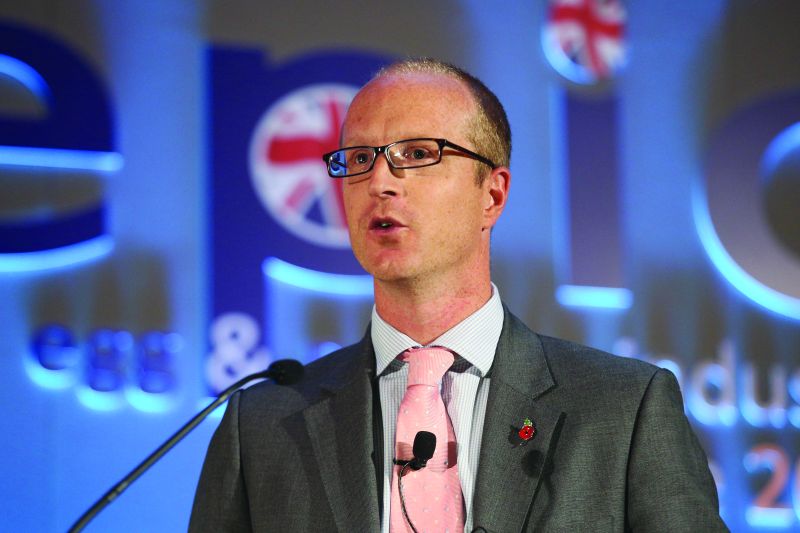
Some free range producers will see medium egg prices cut by as much as 10 pence per dozen as a result of reductions introduced by a cooperative.
Egg producers have received letters from cooperative Stonegate Farmers outlining the significant reductions to egg prices.
Stonegate's Tom Willings told FarmingUK that the reductions were a response to an oversupply in the egg market and retailers looking for savings.
Price cuts are particularly heavy for medium eggs. As we reported in the magazine last month, medium eggs are proving increasingly difficult to shift, with retailers preferring large and very large grades.
"The demand for large eggs is growing, so we need producers to produce more large eggs," said Mr Willings, explaining Stonegate's decisions to make bigger reductions in medium grades. The price for standard medium free range will fall by 10 pence.
Asked how big a percentage reduction this was, he said: "A fair estimate or notional representative figure would be about 10 per cent."
Prices for large and very large eggs will be reduced by the equivalent of four pence per dozen.
The cut is not confined to standard eggs. British Blacktail producers will see their price for mediums reduce by up to eight pence per dozen.
'Oversupply'
Stonegate is removing the four pence per dozen premium currently paid to producers who manage their birds without beak trimming. Mr Willings said that all Blacktail birds would in future have intact beaks.
Blacktail producers will also see the price for medium eggs cut by four pence. "It is a cumulative reflection of supply and demand - we are in oversupply - and the state of the market," said Mr Willings, "it reflects all the changes in retail supply over the course of the last six months."
He said Asda and Sainbury were looking for 10 per cent savings by merging, Tesco would be looking for economies through its deal with Carrefour, and Morrisons had acquired its own egg business in the shape of Chippindale Foods.
He said the demand for eggs was growing at about four or five per cent each year but this was being outstripped by the increase in the size of the national flock.
Stonegate is also making reductions through its feed tracker. In a letter to Stonegate producers, Mr Willings said: "The independent reference used for feed raw materials remains a very valuable insurance policy against volatility, and over the next few months, as the current harvest is brought in from the fields, we may yet appreciate its value once more.
"The feed model remains in place and continues to operate unchanged. The raw material price movement on the July report is -£2.20/t, meaning that collections between July 29 and August 25 will be subject to a price reduction of -0.44ppd across all grades," he said.
"Since February 2016, when we introduced the mechanism for reflecting the variable costs of feed raw materials in the prices we pay for eggs, the market has moved on at an incredible pace. The national free range flock then stood at 18 million hens, according to BEIC. Today, it's over 23 million; growth of nearly 28 per cent in two years, far outstripping the increase in demand over the same period."
'Regretted'
In his letter, he said that he regretted having to make the changes, but pointed to significant changes in the market.
"The food industry has borne witness to extraordinary events as large companies seek to leverage ever greater efficiencies in buying," he said in the letter to producers," Mr Willings said.
"We've seen the proposed merger of two leading supermarkets, a buying partnership across borders and the acquisition of an egg supplier, effectively reducing the retail market accessible to our industry by 10 per cent overnight. All within the last six months. Sadly, we are not immune to the market disruption that this activity brings.
"The traditional seasonal slow-down is felt more acutely this year, as European and global markets have recovered after a prolonged period beset by food scares and notifiable disease. The resultant wholesale price for eggs, compounded by the obvious surfeit of eggs, is particularly weak, as has been roundly publicised in trade press.
"This has had a direct effect on our ability to trade the seconds and smalls we generate and, consequently, the price we are able to return to you. From July 29, 2018 the price paid for smalls, farm seconds and graded seconds will revert to a base price of 45ppd, 40ppd and 30ppd respectively.
Mr Willings added: "Additionally, our consumers' shopping behaviour continues to shift, and we must respond. The growing preference towards large grade egg is significant, and the increasing demand for this grade is reflected in this necessary price adjustment."
Stonegate is arranging a series of meetings with producers to discuss the changes.
